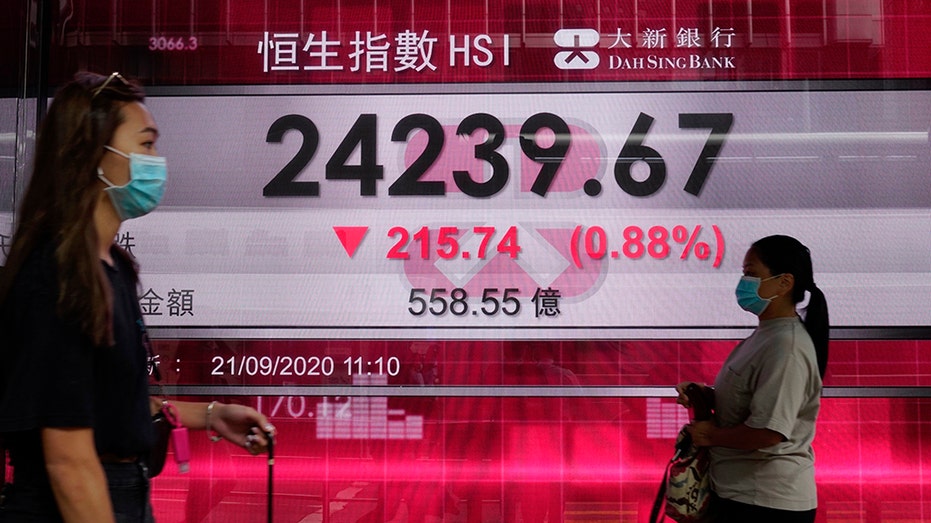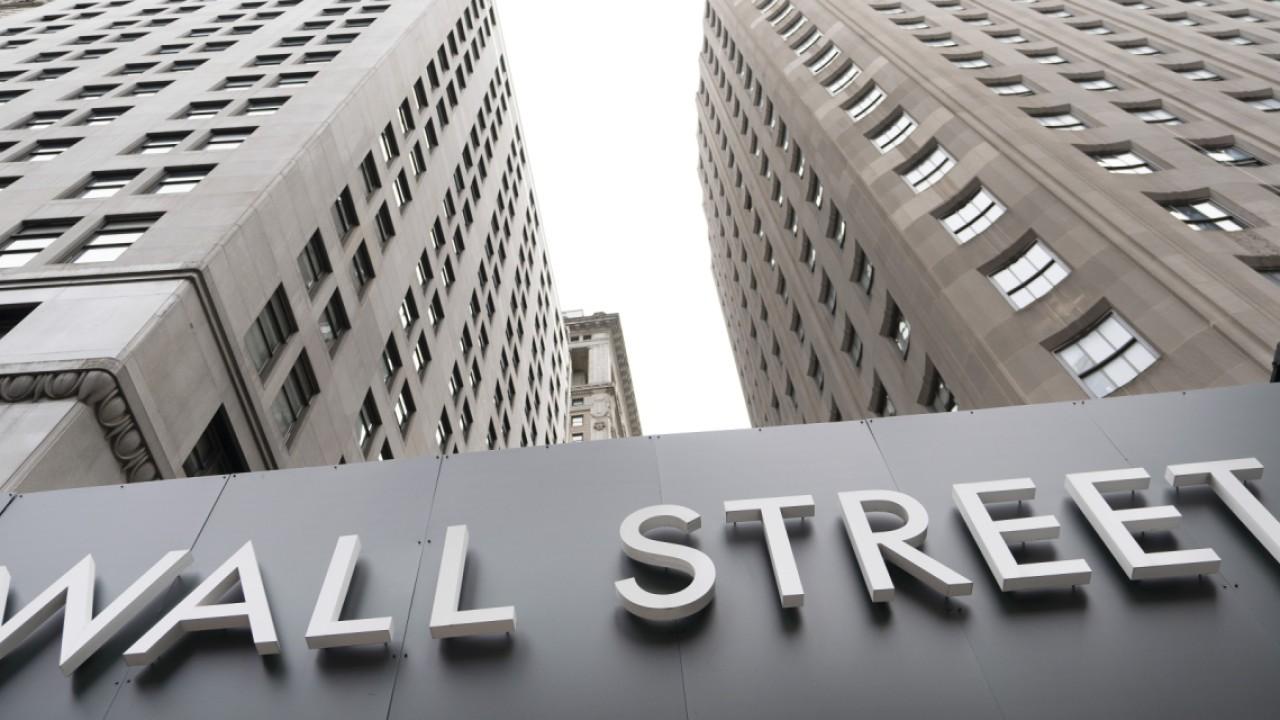Asian shares down for second day, dollar rises in Far East trading
HSBC, Standard Chartered shares fall more than 2% as global banking under pressure
HONG KONG/NEW YORK - Asian shares extended losses for the second day on Tuesday while the dollar rose, as possible delays in expanded U.S. stimulus and concerns about fresh pandemic lockdowns in Europe knocked investor sentiment.
Hong Kong shares of HSBC 0005.HK and Standard Chartered 2888.HK fell more than 2% each, as global banking stocks remained under intense pressure on reports about financial institutions allegedly moving illicit funds.
British lenders HSBC and StanChart were among global lenders named as having transferred more than $2 trillion in suspect funds over nearly two decades.
GLOBAL ECONOMIC FEARS, CORONAVIRUS RESURGENCE DRIVE ASIAN SHARES DOWN
MSCI's broadest index of Asia-Pacific shares outside Japan .MIAPJ0000PUS was down 0.5%.
Australia's S&P/ASX 200 .AXJO dropped 0.7% pressured by miners and energy stocks, while China's blue-chip index .CSI300 shed 0.1% and Hong Kong's Hang Seng index .HSI was down 0.5%. Japanese markets were closed for a public holiday.

People wearing face masks walk past a bank's electronic board showing the Hong Kong share index at Hong Kong Stock Exchange Monday, Sept. 21, 2020. Asian stock markets were mostly lower Monday after Wall Street declined for a third week and Britain r
After-hours trade pointed to further selling pressure on Wall Street on Tuesday, with S&P 500 futures ESc1 down 0.2% in early Asia and Nasdaq 100 futures NQc1 off 0.4%.
“We can’t see any positive news on the horizon in the near-term for the markets to rebound,” said Steven Leung, executive director for institutional sales at Hong Kong brokerage UOB Kay Hian.
Overnight on Wall Street, the Dow Jones Industrial Average .DJI fell 1.84%, the S&P 500 .SPX lost 1.16%, and the Nasdaq Composite .IXIC dropped 0.13%.
U.S. stocks have tumbled over the past three weeks as investors dumped heavyweight technology-related shares following a stunning rally that lifted the S&P 500 and the Nasdaq to new highs.
SINGAPORE AIRLINES CONSIDERS PILOTING 'FLIGHTS TO NOWHERE' TO BOOST BUSINESS: REPORT
JPMorgan Chase & Co JPM.N and Bank of New York Mellon Corp BK.N fell 3.1% and 4.0%, respectively, on Monday.
“The question is whether or not the residue of that impacts the performance of regional financials,” said CommSec market analyst Tom Piotrowski in Sydney.
The coronavirus also remains front and centre of investor concerns.
New pandemic measures in the UK set off declines in airline, hotel and cruise companies in both European and U.S. markets, spurring fears about further restrictions.
The Telegraph newspaper reported Prime Minister Boris Johnson will encourage Britons on Tuesday to go back to working from home. Any fresh coronavirus restrictions would threaten a nascent recovery and further pressure equity markets.
Concerns are also growing about a delay in stimulus measures after the U.S. Congress has remained deadlocked for weeks over the size and shape of another coronavirus-response bill, on top of the roughly $3 trillion already enacted into law.
The death of U.S. Supreme Court Justice Ruth Bader Ginsburg appeared to make the passage of another stimulus package in Congress less likely before the Nov. 3 presidential election, sparking large declines in the healthcare sector.
U.S. President Donald Trump said he would put forward his nominee on Friday or Saturday and called upon the Senate, controlled by his fellow Republicans, to vote on confirmation ahead of the election.
The dollar held on to sharp gains made on Tuesday, with moves in Asia modest owing to a public holiday in Japan. The euro EUR= was steady at $1.1764 and the yen, which backed off a six-month high as the dollar gained, crept higher to 104.56 per dollar.
CLICK HERE TO READ MORE ON FOX BUSINESS
The Australian dollar AUD=D3 slipped a fraction to $0.7218 after a senior central banker flagged the prospect of policy options including currency market intervention and negative interest rates to support the economy.
Gold fell against the rising dollar, and last traded at $1,908.76 per ounce.
In oil markets, U.S. crude CLc1 rose 0.66% to $39.57 per barrel while Brent LCOc1 gained 0.31% to $41.95.




















